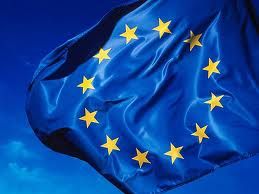
Better air quality is on the way, thanks to proposals from the European Commission to lower the sulphur content of shipping fuels. The proposals should reduce sulphur dioxide emissions by up to 90 %, and fine particle emissions by up to 80 %. The benefits for public
health will be between EUR 15 and 34 billion, far exceeding the expected costs, which are in the range of EUR 2.6 to 11 billion. With nearly half of Europe's population living in areas where EU air quality objectives are still not met, air pollution is one of the main environmental worries facing citizens.
Environment Commissioner Janez Potočnik said: "Air pollution does not stop at borders. Land sources have been subject to the attentions of regulators for some time, and the time has now come for the maritime sector to deliver its fair share, all the more so as the impacts on air quality are felt far beyond coastal areas. This proposal is an important step forward in reducing air emissions from the fast-growing maritime transport sector. It will help resolve the persistent air quality problems that continue to affect millions of Europeans. It is part of a transformational agenda that will prepare the sector for the challenges of tomorrow."
Vice-President Siim Kallas added: "Transposing into EU law the standards unanimously agreed in the IMO would be a step towards further improving the sustainability of waterborne transport. I am very glad that the proposal includes a variety of short and medium-term accompanying measures to help the sector face this challenge".
The proposed legislation revises the Directive on the sulphur content of certain liquid fuels and incorporates new IMO standards into EU law to ensure their proper and harmonised enforcement by all EU Member States. Under the proposals, the maximum permissible sulphur content of maritime fuels used in sensitive areas such as the Baltic Sea, the North Sea and the English Channel will fall from the previous level of 1.5 % to 0.1 %, as of 1 January 2015. Other areas are to achieve an even bigger cut, from 4.5 % down to 0.5 % by 1 January 2020.
Ships will be allowed to use equivalent technologies such as exhaust gas cleaning systems as an alternative to using low sulphur fuels. Other important changes proposed include more unified reporting and verification, and sampling provisions aligned with international standards. The proposal should be phased in from 2015 to 2020. In the meantime, the Commission will develop, in 2012, a series of medium and long-tem measures within the framework of a "Sustainable Waterborne Transport Toolbox" to foster sustainable and competitive short sea shipping.
While the new rules will pose challenges for the sectors concerned, the use of alternative abatement technologies will significantly reduce compliance costs and stimulate innovation and resource efficiency.
The proposed revision is an effort to address persistent air quality problems in advance of a wider Commission review of air policy scheduled to take place before 2013. The proposal builds on stakeholder consultations and on various studies on the costs and benefits of the planned measures and their possible impact on the shipping industry.
Background
Crude oil is processed into distilled fuels such as petrol and diesel, and residues such as heavy fuel oil and bitumen. Ships traditionally use these heavy fuel oils for propulsion. Heavy fuel oils can have a sulphur content of up to 5 %; in comparison, the sulphur content of fuels used in trucks or passenger cars must not exceed 0.001 %.
Sulphur dioxide emissions cause acid rain and generate fine dust. This dust is dangerous for human health, causing respiratory and cardiovascular diseases and reducing life expectancy in the EU by up to two years.
Emissions from air pollutants such as sulphur have decreased over the past 20 years. However, the EU is some way short of achieving its objective, namely levels of air quality that do not give rise to significant negative impacts on and risks to human health and the environment. Without further action, maritime emissions could exceed the total of EU land-based emissions by 2020, according to current trends.
The Commission will carry out a comprehensive review of the EU air strategy by 2013, and is taking urgent short-term measures to resolve persistent problems encountered by the Member States in complying with air quality standards, notably for the fine dust known as particulate matter (PM), and for ozone. This proposal to align the quality of marine fuels with the latest standards agreed by the International Maritime Organisation is one such immediate measure.
Source: European Commission
We use cookies to improve your experience. By continuing to use our site, you accept our Cookies, Privacy Policy,Terms and Conditions. Close X